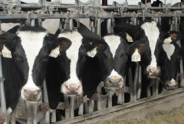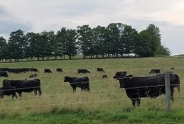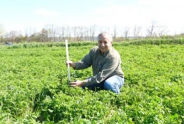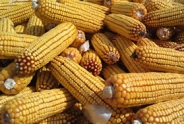GDDs July 17, 2020
Kevin Ganoe, Area Field Crop Specialist
Central New York Dairy and Field Crops
Each week we will be offering the air Growing Degree Days (GDDs) for corn that have accumulated to date from 13 locations across the team 8 county area. A thank you to our intern Peter Burritt for pulling this information together.
Four planting dates will be listed and included will be:
GDDs Season To Date
15 Year Average GDDs
30 Year "Normal" GDD
Period of Record - Max and min recorded GDDs for that time period
See: Growing Degree Day Calculator
Growing Degree Days for corn are Base 86/50 degree F and calculated by taking the average daily temperature, ((Daily Max Temp - Daily Min Temp)/2) - 50. But the maximum temperature cannot be more than 86 degree F and the minimum less than 50 degree F.
With the exception of the May 1 planting date GDDs are at or above the 15 year average and definitely above the 30 year "normal" for the date and the May 10 and 20 planting dates are near record GDDs for this date.
Some tassels have already been seen this week as more earlier planted corn at lower elevations should begin tasseling/silking (1200-1300GDDs) in the next week. Take note of tasseling dates as Joe Lawrence from the ProDairy Program indicates silage harvest is likely to begin about 800 GDDs for 101-110 day hybrids and 750 GDDs for 96-100 day hybrids after tasseling:
Record Silking/Tasseling Dates for Corn Fields
Some of the greatest corn yield losses can occur from drought stress at tasseling/silking. As of July 14, all eight of our counties were listed in the abnormally dry category at the United States Drought Monitor site and much of Saratoga County indicated as moderate drought:
See the attached table for more of the July 17, 2020 results.
See the attached pdf for a good guide on corn development and our reference for growth stages.
GDDs July 17, 2020 (pdf; 434KB)
Visual Guide to Corn Development (pdf; 21544KB)
Upcoming Events
2026 Dairy Day
January 13, 2026 : Dairy Day - Hamilton
Hamilton, NY
Lunch included
January 14, 2026 : Dairy Day - Ballston Spa
Ballston Spa, NY
Lunch included
I Thought I Was Covered for That! - Farm Insurance Webinar Series
January 13, 2026
January 20, 2026
January 27, 2026
February 3, 2026
February 10, 2026
Free Webinar Series
2026 Corn & Soybean Day
January 20, 2026 : Corn & Soybean Day - Hamilton
Hamilton, NY
Lunch included. 2.75 DEC Credits available
January 21, 2026 : Corn & Soybean Day - Ballston Spa
Ballston Spa, NY
Lunch included. 2.75 DEC Credits available
Announcements
Statewide Field Crop Pathology Needs Assessment Survey
Your input is wanted for identifying priorities!Sign Up for Our Weekly E-Newsletter
We send out a bi-weekly e-newsletter that has announcements, upcoming programs, and opportunities for you! Registration is quick, easy, and free. Click here to sign up today!Farmers Can Join MeatSuite For Free!
MeatSuite.com is a free resource provided by Cornell University where NY meat farmers can create a farm profile and list their bulk (wholes, halves, quarters) and bundled (i.e. Grilling Bundle) meat products.Why should farmers join?
1. It's free and easy!
2. Connect with more local customers. In the past year the MeatSuite.com farm directory had 8,300 visits from New York consumers. Farm profiles get as many as 25 views per month from potential local customers. We also spotlight MeatSuite farms on social media and bring attention and purchases to farms through highlights and giveaways.
How do I join?
Farmers can visit https://www.meatsuite.com/farmers/ to create a free farm profile. You must list at least one product for your farm's profile to go live. You'll also have access to Cornell's free Meat Price Calculator, a helpful tool for pricing your meat to make a profit.
While you're on MeatSuite, check out the "Creating Consumer-Friendly Bulk Meats" publication on the log-in page. It has tips on how to create bulk meat products that are easier for first-time buyers to say "yes" to.
If you have any questions as you create your farm profile or products, we're here to help! Please email Matt LeRoux at mnl28@cornell.edu.




